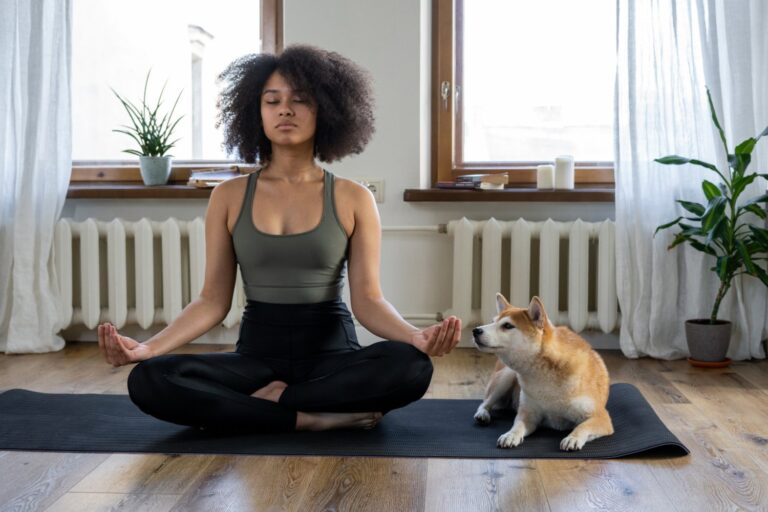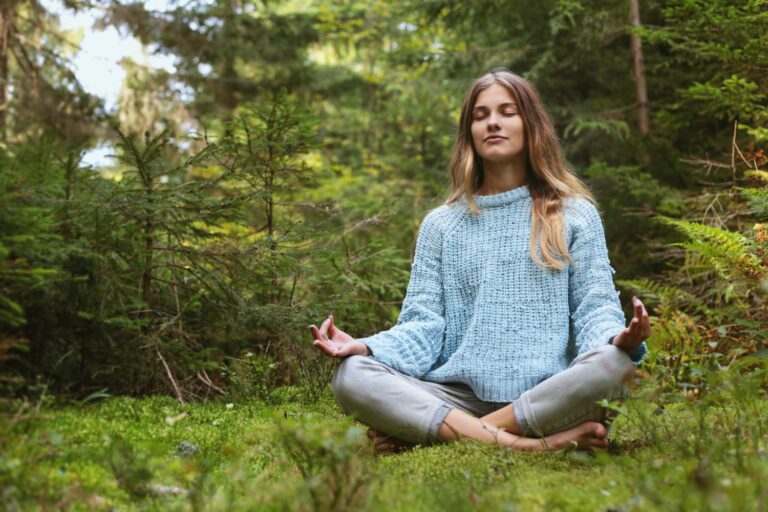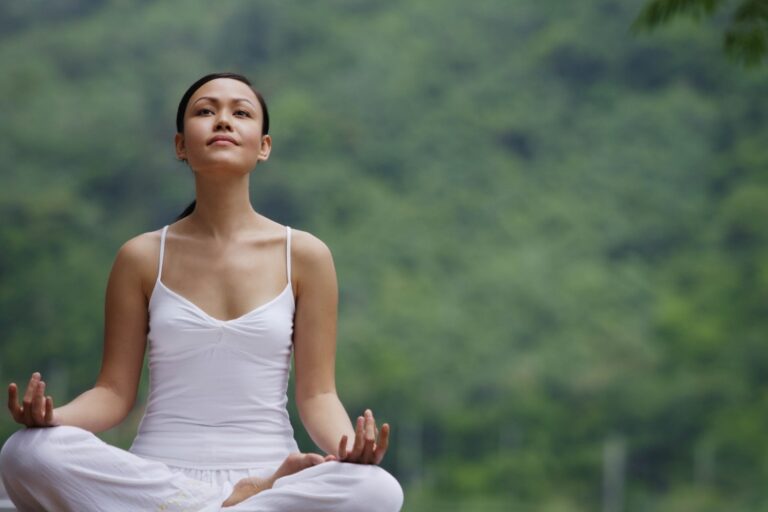10 Mindfulness Exercises For Anxiety Reduction
Anxiety is an issue that many people deal with on a daily basis. It can be difficult to find peace of mind when you’re constantly worrying about what might happen. Luckily, mindfulness exercises are available to help reduce anxiety and even improve your mood.
In this article, we will look at 10 helpful mindfulness exercises for anxiety reduction that you can easily practice on a daily basis.
What Is Anxiety?
Anxiety is a normal part of life. It’s your body’s way of alerting you to potential threats, which usually means that it will help keep you safe from danger or discomfort. However, in todays world many people experience anxiety when their mind sends them false alerts about things that are not actually dangerous at all – the heart might start racing, the chest might start feeling tight, the mind might start spinning, and it can be difficult to get these thoughts to subside.
If you are experiencing anxiety on a regular basis – mindfulness exercises may help. Let’s get started with some of the best mindfulness exercises for anxiety reduction!
Mindfulness For Anxiety Exercises
1. Practice deep breathing
Practice this simple mindful breathing exercise whenever you feel anxious. It will help calm your nervous system and relax your body and mind.
Deep breathing exercise:
Inhale slowly through your nose, hold for a moment, then exhale slowly through your mouth. Breathe deeply like this for 3 minutes. Close your eyes and focus on the feeling of your breath going in and out.
2. Mindful eating exercise

When having a meal, try this mindfulness exercise. Practice being fully aware of the taste and smell of your food when eating. Enjoy every bite that you take. This simple mindfulness technique can help reduce anxiety by making us more present during our meals.
This mindfulness exercise can be especially great for people who tend to eat quickly without really tasting their food, which is not good for neither digestion or enjoyment! So next time you take a bite of something, try this technique and see if it makes a difference in how much you enjoy and appreciate your food.
3. Meditate for 10 minutes
Meditation as a mindfulness exercise for anxiety reduction can really help if done on a regular basis. For this you will simply need to sit quietly in your room (or another place of silence) with your eyes closed. Try not to move around too much, but instead focus on the feeling of stillness and silence within you.
Your mind will probably start to wander during the meditation, so just acknowledge this when it happens. Let the thoughts pass and return your attention back to being quiet inside yourself. Try doing meditation for at least ten minutes every day if possible.
Some people find it easier to meditate using an app like Brain.fm, which has science based music and soundtracks for focus, relaxation, meditation, and more.
Many people like listening to guided meditations. We recommend Room to Breathe by Sharon Salzberg. Here Sharon has included eight essential guided practices and mindfulness teachings. This includes ‘Calming the Mind’ – which is a technique to help replace anxiety with composure and strength.
4. Get outside for at least 20 minutes each day

Spending time in nature has been shown to reduce stress and anxiety. So make sure to get outside every day, even if it’s just to sit down in the garden or walk around your neighborhood.
5. Put on relaxing music and do some light stretching
If you’re feeling anxious, try putting on some relaxing music and do some light stretching. This mindfulness exercise will help to reduce the physical symptoms of anxiety by getting your body moving around in a gentle way. Breathe deeply during this mindfulness activity for best results.
6. Practice kind self-talk
When you’re feeling anxious, try talking to yourself as if you were a close friend who was just having a bad day. Try to be the kindest possible friend to yourself that you could imagine. Be gentle with your own feelings and acknowledge them with love and acceptance – even when you’re feeling down about something.
This mindfulness exercise can be especially useful when your anxiety is talking to yourself in a critical way about how terrible things are, or what might happen if this-or-that thing happens… This mindfulness technique will help remind you that everything is okay by changing how you talk to yourself during times of anxiety.
Give yourself permission not to be perfect all the time! If you mess up or make mistakes don’t beat yourself up over them. It’s ok! Everyone makes mistakes from time-to-time 🙂
7. Read a helpful book or article
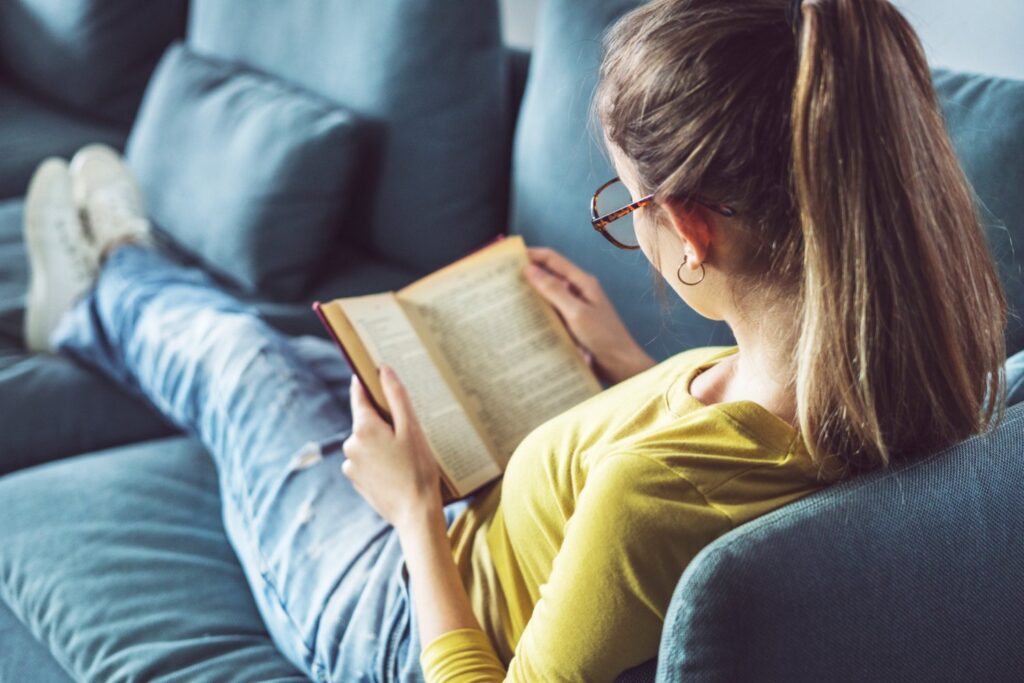
Reading a helpful and inspiring mindfulness book or blog article when feeling anxious can help to put your mind in a more positive state so you feel better about life and yourself.
We have many helpful mindfulness blog posts articles right here on this site, and we have several recommended mindfulness books, tools and guides in our Resources section.
8. Log out of your social media
Make sure to completely log out of all your social media accounts for extended periods of time every day. And when you want to check in, set a time limit for yourself e.g. max 15 minutes. This will help you to not get caught up in the habit of scrolling mindlessly through your phone when feeling anxious or stressed, which can in turn lead to feeling more anxious. It will instead free up time to practice being more mindful and present in your daily life.
You may even want to delete a social media account or two while you’re at it. This study found that using several social media platforms was linked to anxiety and depression in young adults.
9. Practice gratitude every day
Write down three things you are grateful for. It can be the most simple things like having a roof over your head or even having access to clean water. Many people find it very helpful to do this in the evening before going to bed. This teaches your mind to find things to be grateful for from that day.
If you do this every evening, you could have a small notebook dedicated to this, so with time it will become a long list of all the things you are grateful for. It’s also fine to repeat your gratitude for a specific thing for several days. Whatever you’re grateful for – write it down. Keep this list or notebook close to your bed or even under your pillow, so that when you go to sleep at night the last thing on your mind will be all the positive things in life.
10. The best way to go to bed for sleep quality
This is not a mindfulness exercise as such, but rather a great habit to have in your life. When you’re anxious or stressed, it’s common to have trouble sleeping. First of all, don’t check your phone or email right before going to bed. Aim to have an hour of no-screen time before bedtime.
Try going to bed at the same time every evening and getting up around the same time in the morning. This will aid your body in getting into a healthy sleep cycle that can help you fall asleep, sleep more soundly, and wake up feeling refreshed.
If you do this mindfulness activity for a week or two, and notice that your anxiety is getting better as a result – it may very well be due to the quality of sleep you’re experiencing.
Conclusion – Mindfulness Exercises For Anxiety
It can be difficult to live a normal life when anxiety gets the best of you, but mindfulness can help reduce it – and these mindfulness exercises are a great place to start.
It’s important not to become overwhelmed with mindfulness exercises though. Try several of the ones in this blog post, and when you find something that works well for you, try to incorporate a couple of them in your daily life.
Remember to be kind and gentle with yourself throughout this process! It can take time, but mindfulness is an incredibly powerful tool we have at our disposal in order to help us live a happier and healthier life.
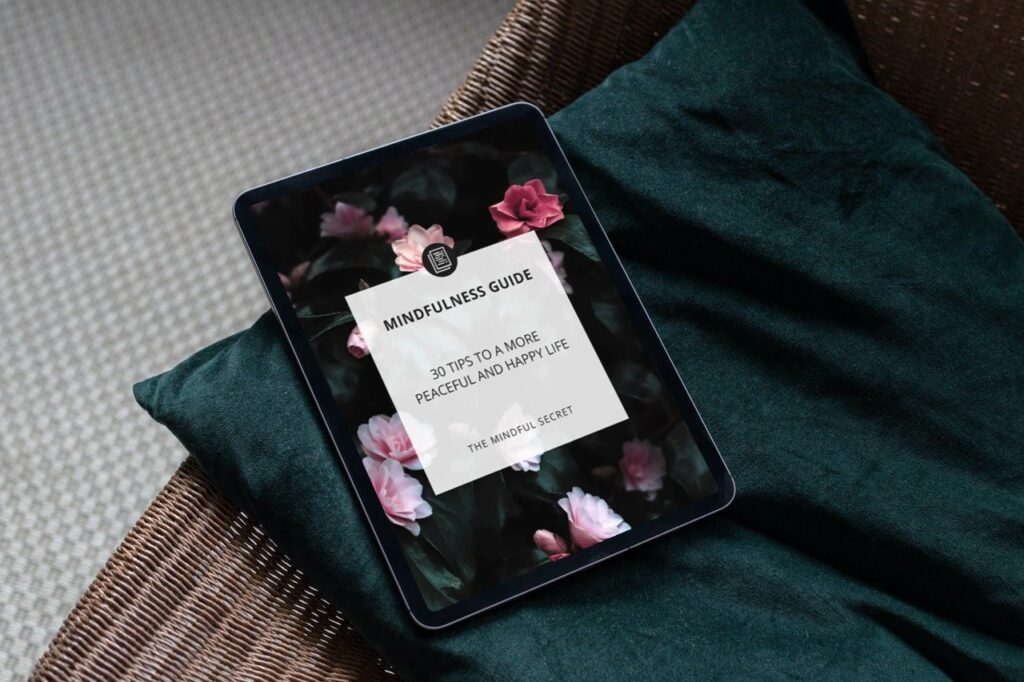
Get Our Mindfulness Guide For Free
“30 Tips To A More Peaceful And Happy Life”
Do you find yourself living in the past or worrying about the future?
Do you ever feel like there is just too much going on and not enough time to take care of what really matters?
If so, mindfulness exercises can help! Mindfulness exercises are a great way to practice living in the moment and become more peaceful. They can even help with stress relief.
This guide will provide you with 30 of the best mindfulness tips and exercises that anyone can do.
When signing up you will also receive our free email newsletter with mindfulness tips, motivational content, and resources. You can unsubscribe at any time. We value privacy and will always protect your email.


